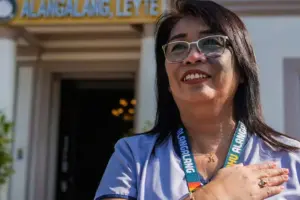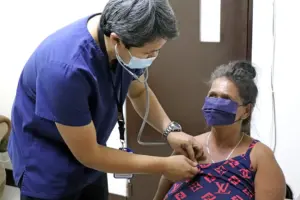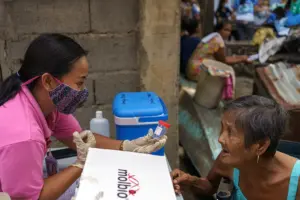Health workers in the Philippines carry out the “Ayos Ka Lungs? Integrating COVID-19 Response and TB Elimination Efforts Campaign,” supported the USAID TB Platforms Project. Photo credit: URC
Philippines
The Philippines has made important strides to tackle the health challenges facing its population, including the establishment of the Universal Health Care Republic Act of 2018, tasked with expanding health care access to underserved populations through an expanded public, private, and mixed provider network. While pursuing the successful implementation of this universal health plan, the Philippines continues to face health challenges exacerbated by poverty, urban migration, and COVID-19. This includes high rates of tuberculosis (TB) and multidrug-resistant TB (MDR-TB). Gaps persist in reproductive and maternal health, as well as access to family planning. The cascade effect of gaps in family planning resources and the reproductive rights of adolescent girls and women impacts both child health and nutrition.
URC’s work in the Philippines began in 2007 with the USAID Health Promotion and Communication Project (HealthPRO) Project. Through this project, URC supported the Philippine Department of Health, local government units, and other stakeholders to promote and sustain health-seeking behaviors related to maternal, newborn, and child health and nutrition, family planning, TB, and HIV/AIDS.
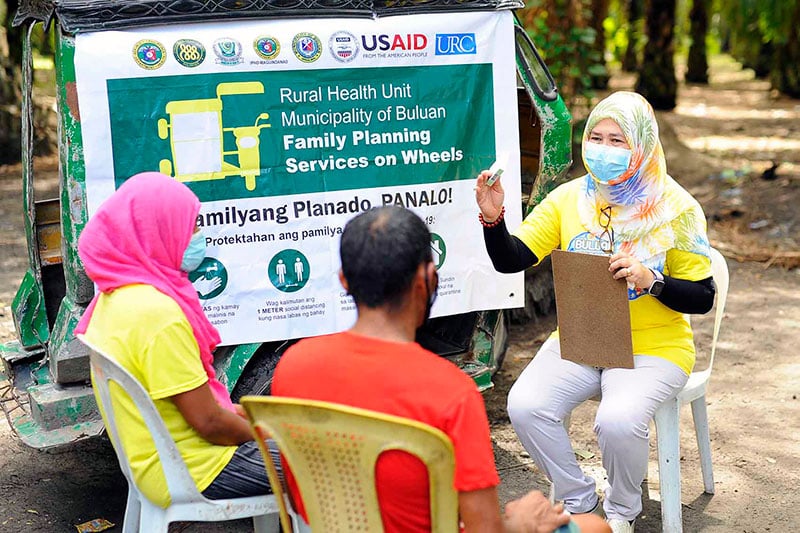
URC’s projects in the Philippines have since addressed quality improvement, health systems strengthening, and social and behavior change across many health areas.
Through the USAID Quality Assurance Projects I, II, and III, URC supported the Philippine Department of Health to achieve large-scale improvements in health care standards and outcomes.
USAID BARMMHealth improved access to quality family planning, maternal and child health, and adolescent reproductive health information and services in the Bangsamoro Autonomous Region in Muslim Mindanao (BARMM). The project built commitment and capacity among government, civil society, and local communities to respond to community needs and facilitated evidence-based solutions to improve health outcomes and create a self-reliant system.
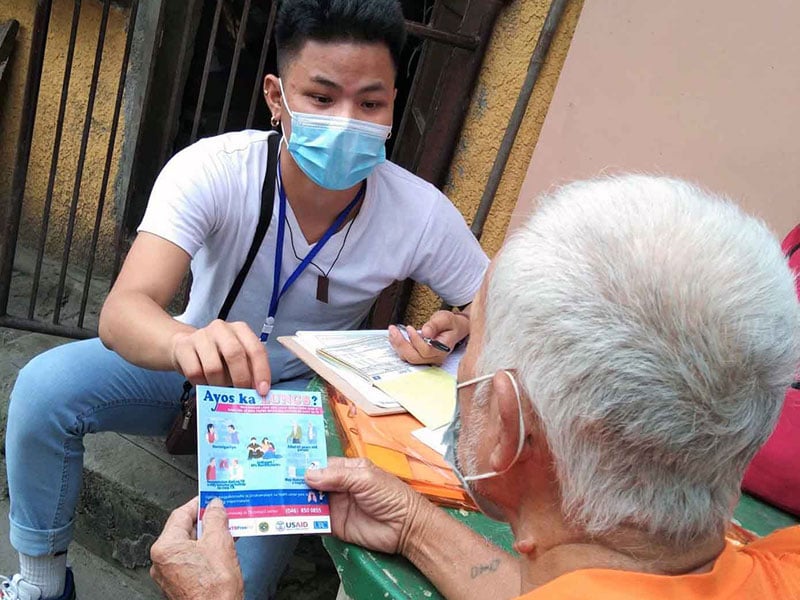
Current Projects
URC currently implements these USAID-funded projects in the Philippines:
- TB Platforms strengthens TB interventions at the regional, local government, and community levels to increase TB case detection and treatment success rates. The project works to expand health system capacity to deliver TB and drug-resistant TB services to targeted populations by supporting, strengthening, and empowering local government units to plan, manage, finance, oversee, and lead TB control efforts
- RenewHealth addresses drug use and addiction by expanding access to evidence-based and culturally appropriate community-based drug treatment and recovery services
